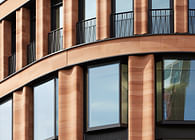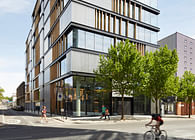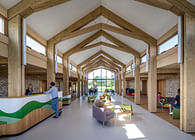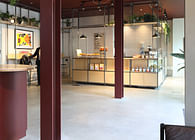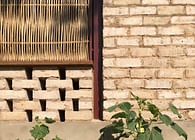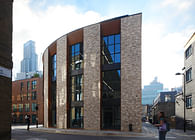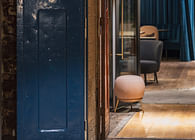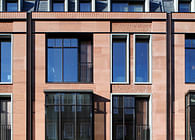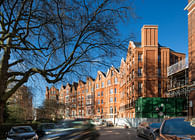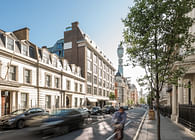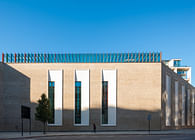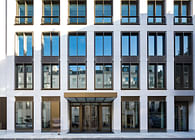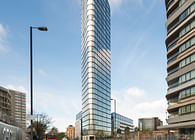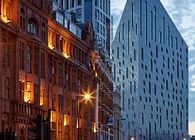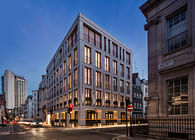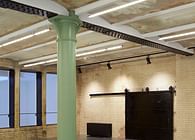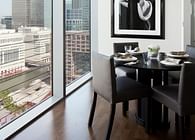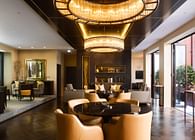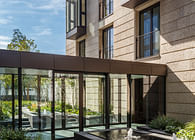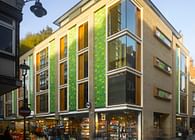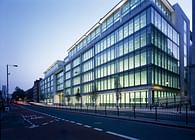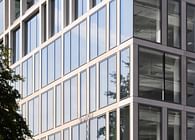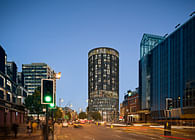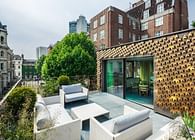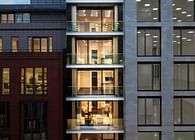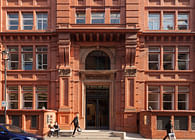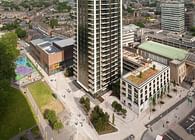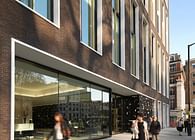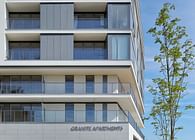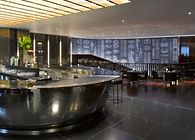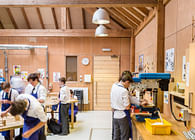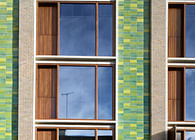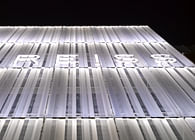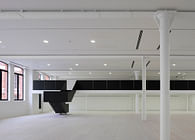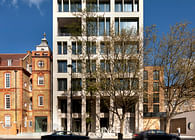
London, GB
Squire & Partners have completed a new Education and Community Centre adjacent to Brixton Windmill for Friends of Windmill Gardens (FoWG) and Lambeth Council. The centre will support activities hosted by the Grade II* listed heritage building, and secure its use for future generations.
Brixton Windmill is a Grade II* listed structure built in 1816 as a working flour mill – locally known as Ashby’s Mill after the family of millers – set within Windmill Gardens at the end of Blenheim Gardens just off Brixton Hill.
The mill ceased production in 1934, and was first opened to the public in the 1960s when the land around it was laid out as a public park. Following intermittent periods of use and neglect the windmill was restored by Lambeth Council with Heritage Lottery funding and returned to public use in 2011. Since then FoWG volunteers have opened it to visitors.
FoWG offer regular guided tours and host a programme of events for the surrounding community, including the popular Beer & Bread festival and workshops for local schools. The charity also mills Brixton Windmill flour which is used by local bakeries, restaurants and retailers and plan to run baking workshops in the new centre.
The project to design a new Education and Community centre and support the future of Brixton Windmill was introduced to the practice in 2016 by local print designers Eley Kishimoto, who were acting as cultural ambassadors in the windmill’s bi-centenary year, and created their iconic ‘Flash’ sailcloth.
Squire & Partners were asked by FoWG – the charity that promotes the Grade II* listed windmill – to design a flexible building for a range of community activities, creating a catalyst to release funding from Lambeth Council. Submitted for planning in 2016, the building was completed in July 2020.
The Education Centre will serve the local community and allow FoWG to generate funds to continue their work preserving the heritage of Brixton Windmill. In addition, the building supports the expansion of the social enterprise, which mills flour using traditional techniques.
Conceived as a simple and beautiful timber framed space, the building is designed to serve a variety of users – including school groups, adult education initiatives, community groups and local residents – and act as a platform for FoWG to showcase the historic mill and host Open Days and festivals. The main space and cafe are also able to be hired for events from birthday parties to weddings, to create revenue for FoWG.
Designs respond to the original miller’s outbuildings with a contemporary crafted pitched roof structure using a Douglas Fir frame with tapered columns, and cladding the exterior in a dark weatherboard. A series of full height bi-fold glazed doors open onto a decked terrace overlooking Windmill Gardens and the Windmill. Sliding panels with vertical slats allow light into the space, and provide security when the building is unoccupied.
The structure is book-ended by two gable walls in a soot-washed Staffordshire Blue engineered brick to reference the black painted Windmill tower. A dark grey roof is punctuated with skylights to flood the internal space with natural light.
Internally, the main space celebrates the exposed timber frame and creates a warm muted palette with an under heated pale grey screed/resin floor, ply-lined walls and suspended pendant lights. Bespoke plywood joinery defines the café serving area and a pop up shop with in-built display areas. Low level units were designed to be used in multiple ways – as tables, storage, museum/shop display or seating.
Behind the main space, a series of smaller rooms provide a grain store, kitchen, administration, cycle parking and WCs.
Status: Built
Location: London, GB
Firm Role: Architect
Additional Credits: Client: Lambeth Council
End user: Friends of Windmill Gardens
Cultural ambassadors: Eley Kishimoto
Structure: Heyne Tillett Steel
Services: Hoare Lea
Cost Consultant: Equals Consulting
Oak Frame: Carpenter Oak
Contractor: Logan’s Construction
Bespoke Joinery: Modwood
Photography: Jack Hobhouse
